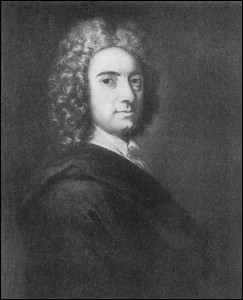User blogs
Crisis of Knowledge at the Beginning of the 21st Century (by Peter Kohut): Abstract: The contemporary crisis of thinking and knowledge is a consequence of positivism and its various branches leading to the extinction of philosophy and refusing to deal with the basic philosophical questions. Positivism became the basis for scientific knowledge replacing Hegelian dialectical rationalism, in which the classical philosophy had achieved its apex. Positivism tried to create the principles for scientific research based on the rules of formal logic and experiment, where the axiomatic approach became a starting point for finding the useful scientific results. Positivism refused to deal with the basic philosophical questions and categories regarding the nature of Being, God and the physical Universe. The way to the truth became “scientific” with many successful and useful discoveries and inventions. The dialectic logic was rejected as speculative, sophistic, metaphysical and useless and replaced by formal logic which together with mathematics and experimental verifications became the basic methods of scientific research mainly in the sphere of theoretical physics. http://scigod.com/index.php/sgj/article/view/103
Basic Cosmic Characteristics (Energy and Force) [by Peter Kohut]: Abstract: The nature of electrostatic and gravitational forces will be derived by using a dialectical logic for finding the basic relations between fundamental physical characteristics of the Universe. http://scigod.com/index.php/sgj/article/view/102
New Proofs for the Existence of God (Part III): The Teleogenical Proof (by Nadeem Haque, Mehran Banaei): Abstract: A synthesis of recent Cosmological and Biological Evidence concretely points to an Intelligence that created this universe that must be independent of this universe. The classical teleological and cosmological arguments have valid components but are not conclusive due to their segmented and non-integrated nature and also because of a logically invalid tactic/strategy used by atheists known as the fallacy of conflation. Also discussed by deconstruction, is the futile attempt at using cloaked language to hide the fact of teleological processes. Epistemologically, it is also shown why the Big Bang is a fact and not a theory. Herein, a complex yet integrated new proof that interweaves all these ideas, called the Teleogenical Proof, is presented that overcomes all the shortcomings of the latter two classical attempted proofs and connects with the Sesamatic proof on the question of infinite regress. http://scigod.com/index.php/sgj/article/view/98
Quantum Entanglement, Its Nature and Manifestations (by Peter Kohut): Abstract: Knowing the mutual interconnection of everything with everything, it is no problem to interpret the interactions between the measuring and quantum systems as any other interactions between two or more systems consisting of elementary quantum dipoles. So, all relations between the measuring apparatus and measured quantum objects are only parts of the universal cosmic network of elementary quantum interactions creating the objective physical reality, independent of a human consciousness. But the observer, as a conscious subject, plays an active and creative role in his communication with the micro-world. http://scigod.com/index.php/sgj/article/view/100
New Proofs for the Existence of God (Part II): The Cosmological Applications of the Sesamatic Proof (by Nadeem Haque, M. Muslim): Abstract: The Sesamatic Proof (aka the Relatiological Proof) for the Existence of God presented in Part I can be applied to three cosmological issues: the Big Bang; the Cyclical Universe and ever-existing matter, to prove the existence of God. http://scigod.com/index.php/sgj/article/view/97

GEORGE BERKELEY (1685-1753), Irish philosopher and mathematician, founder of modern idealism, famous as “the precursor of Mach and Einstein”
Dr. Berkeley’s philosophy of science anticipated Ernst Mach’s physics and Einstein’s Theory of Relativity. Two centuries before Einstein, Berkeley rejected the theory of absolute space, time, and motion, in his treatise De Motu (On Motion, 1721). Berkeley’s major mathematical work The Analyst (1734) comprises numerous objections to the doctrine of fluxions and the concept of infinitesimals. (See Sir Karl Popper, “A Note on Berkeley as Precursor of Mach and Einstein,” in Conjectures and Refutations, London: Routledge and Kegan Paul, 1992; see also K. Popper, “Berkeley’s Anticipation of Mach and Einstein,” in Locke and Berkeley, ed. C. B. Martin & D. M. Armstrong, London: Macmillan, 1968).
1. “Raise now your thoughts from this ball of earth to all those glorious luminaries that adorn the high arch of heaven. The motion and situation of the planets, are they not admirable for use and order? Were those (miscalled erratic) globes once known to stray, in their repeated journeys through the pathless void? Do they not measure areas round the sun ever proportioned to the times? So fixed, so immutable are the laws by which the unseen Author of nature actuates the universe.” (Berkeley 1910, 2nd Dial.)
2. “When I say the being of a God, I do not mean an obscure general Cause of things, whereof we have no conception, but God, in the strict and proper sense of the word. A Being whose spirituality, omnipresence, providence, omniscience, infinite power and goodness, are as conspicuous as the existence of sensible things, of which (notwithstanding the fallacious pretences and affected scruples of Sceptics) there is no more reason to doubt than of our own being.” (Berkeley 1910, 3rd Dial.)
